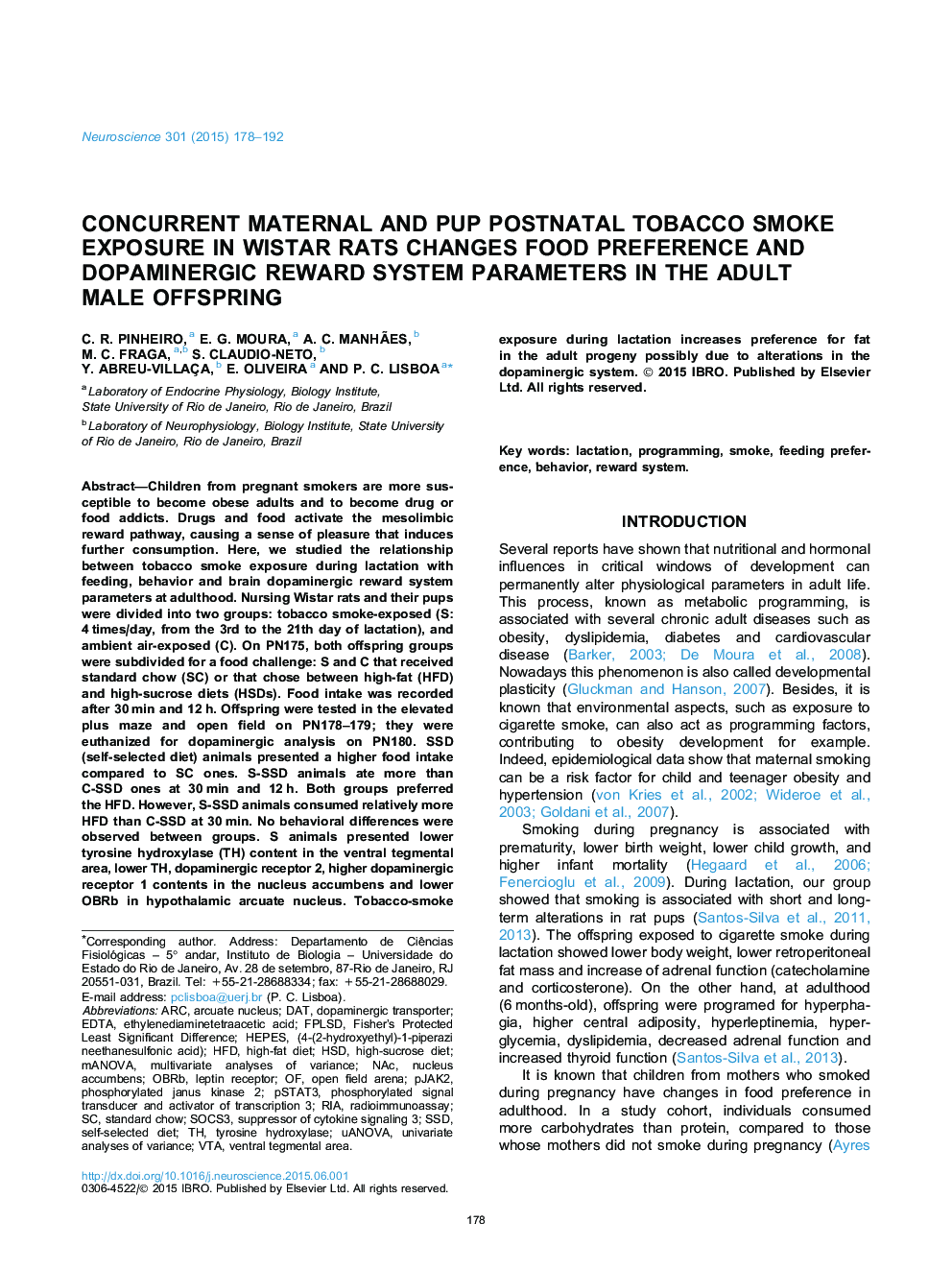| Article ID | Journal | Published Year | Pages | File Type |
|---|---|---|---|---|
| 6272103 | Neuroscience | 2015 | 15 Pages |
â¢Tobacco smoke exposure during lactation has long-lasting influence on feeding behavior and the brain reward system.â¢Postnatal tobacco smoke exposure increases preference for fat at adulthood.â¢The progeny who was smoke-exposed during lactation can be more susceptible to become food addicts and obese in adulthood.
Children from pregnant smokers are more susceptible to become obese adults and to become drug or food addicts. Drugs and food activate the mesolimbic reward pathway, causing a sense of pleasure that induces further consumption. Here, we studied the relationship between tobacco smoke exposure during lactation with feeding, behavior and brain dopaminergic reward system parameters at adulthood. Nursing Wistar rats and their pups were divided into two groups: tobacco smoke-exposed (S: 4Â times/day, from the 3rd to the 21th day of lactation), and ambient air-exposed (C). On PN175, both offspring groups were subdivided for a food challenge: S and C that received standard chow (SC) or that chose between high-fat (HFD) and high-sucrose diets (HSDs). Food intake was recorded after 30Â min and 12Â h. Offspring were tested in the elevated plus maze and open field on PN178-179; they were euthanized for dopaminergic analysis on PN180. SSD (self-selected diet) animals presented a higher food intake compared to SC ones. S-SSD animals ate more than C-SSD ones at 30Â min and 12Â h. Both groups preferred the HFD. However, S-SSD animals consumed relatively more HFD than C-SSD at 30Â min. No behavioral differences were observed between groups. S animals presented lower tyrosine hydroxylase (TH) content in the ventral tegmental area, lower TH, dopaminergic receptor 2, higher dopaminergic receptor 1 contents in the nucleus accumbens and lower OBRb in hypothalamic arcuate nucleus. Tobacco-smoke exposure during lactation increases preference for fat in the adult progeny possibly due to alterations in the dopaminergic system.
